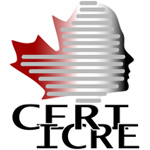PRESTON MANNING
The new Conservative government in Ottawa faces a significant challenge to establish a positive working relationship with the country's scientific community.
Federal policies and actions in this area are critical to the productivity of our economy and the quality of Canadian life. And a clear national policy on the role of science, technology, and innovation is especially important to progressive private-sector companies, the research laboratories of Canada's universities, and a host of national scientific agencies, granting councils, Crown corporations, and foundations dependent on the federal government for direction and financial support.
One of my major concerns while I was a member of Parliament was the large communications gap between the political and scientific communities. Despite the fact that science has a huge contribution to make toward the resolution of national issues, ranging from productivity improvement and environmental protection to the genetic modification of plants, animals, and our own species, there were no real scientists in any of the party caucuses and few science administrators or advisers among the upper echelons of political staffs. To my knowledge, this situation has not changed as a result of either the 2004 or 2006 election.
So what can be done? Here are several suggestions for the people at the top:
1. Invite Arthur Carty, the National Science Adviser to the Privy Council Office, to organize briefings for the Prime Minister and cabinet, and for the government caucus, outlining the nature and scope of the federal government's science commitments and the current requirement for a national strategy for science, technology, and innovation. Mr. Carty is a distinguished scientist (chemistry) and science administrator (National Research Council), who can co-ordinate input from the heads of the major granting councils and the science advisers of key departments for such an overview presentation;
2. Give the new Industry Minister, Maxime Bernier, a mandate to develop a national science vision and strategy that incorporates principles and priorities mutually agreeable to the government and the science constituency. Industry Canada oversees much of the federal government's science activity, and Mr. Bernier, a bright young economist from Quebec, has both the academic and conservative credentials to do the job well.
3. Make full use of the relationship-building work that James Rajotte, the MP for Edmonton-Leduc, has been doing with the scientific community over the past few years. Mr. Rajotte has served as the Opposition critic for Industry and Science and, along with his hard-working assistant Michelle Austin, has attended more scientific briefings, read more science policy papers, and added more names to his Canadian science Rolodex than any other Conservative MP I know.
Several more practical suggestions for any and all MPs, especially the newly elected ones:
1. Attend the Bacon and Eggheads breakfasts in Ottawa designed to bring MPs and their staff together with Canada's leading scientists.
(These are organized by the Partnership Group for Science and Engineering -- see their schedule of events at www.pagse.org/en/breakfasts.htm);
2. Acquaint yourself with the impressive efforts being made to interest and involve Canadian youth in science and technology by programs such as Let's Talk Science (www.letstalkscience.ca) and the Canada-Wide Science Fair, organized by the Youth Science Foundation Canada (www.ysf.ca);
3. Visit a major, federally supported science project or facility in your province to get a personal feel for science in action -- these range from the Herzberg Institute for Astrophysics in Victoria, to the National Institute for Nanotechnology in Edmonton, to the medical research laboratories at the University of Toronto and its teaching hospitals, to the Canadian Space Agency at St. Hubert, to the Institute for Ocean Technology in St. John's.
Finally, efforts to improve relations between the political and scientific communities must, of necessity, involve improving relations between the politicians and the universities because so much of our scientific research is conducted there.
Such efforts have been hampered in the past by the not-unfounded belief held by some conservatives that many of our universities are dominated by left-wing, anti-market, anti-free trade, anti-American intellectuals obsessed with political correctness and generally hostile to conservative thinking and policy positions.
My rebuttal to conservatives holding this belief is that while such attitudes may predominate in the social and humanities faculties, there is much more fertile ground for building a solid and positive relationship between conservatives and academia in the science, engineering, medical, and business faculties -- faculties whose professors, researchers, and students today include some of the sharpest minds in the country.
That relationship needs to be built on a common commitment to freedom and its indivisibility. The freedom of scientific inquiry that the scientist values so highly, and the freedom of conscience, personal freedoms, and economic freedoms that conservatives value so highly, are the same thing.
The work of developing and implementing public policies to protect, support, and advance that freedom provides common ground between scientists and conservative lawmakers -- common ground on which I am hopeful that the new Conservative administration will build constructively in the days ahead.
Preston Manning, a former leader of the Official Opposition, is the president of the Manning Centre for Building Democracy and is chair of the Board of Advisers for the National Institute of Nanotechnology at the University of Alberta. |

